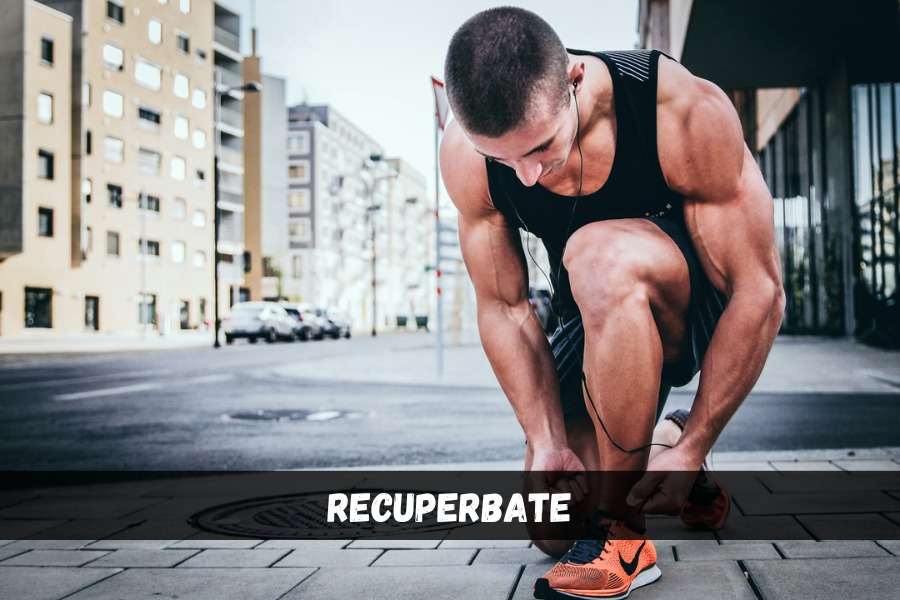The modern world presents a constant challenge when it comes to maintaining balance between work, family, social responsibilities, and personal health. People are often pushed to their limits, leaving them feeling burnt out or depleted. In response to this growing issue, many are turning to recuperbate, a holistic approach to recovery and wellness that emphasizes not just physical rejuvenation, but also emotional and mental healing. Unlike traditional methods of recovery that may focus solely on physical rest, recuperbate integrates a comprehensive approach, offering a blend of physical, mental, and emotional healing practices. This article explores the concept of recuperbate, its principles, benefits, and how to incorporate it into your daily routine.
What Is Recuperbate?
Recuperbate is a term that combines the concepts of recuperate (to recover or regain health or strength) with rejuvenate (to restore to a former state of health, energy, or vitality). In essence, recuperbate is about holistic recovery: a proactive and integrated approach to well-being that encompasses physical recovery, mental clarity, and emotional stability. The idea behind recuperbate is not just to recover from exhaustion or illness but to continuously maintain balance and resilience in the face of life’s challenges. It supports long-term health and vitality by addressing not only the body but also the mind and spirit.
The principles of recuperbate are grounded in mindfulness, prevention, and balance. This means that recuperbate isn’t simply a reactive process that happens when you feel run down or stressed. Instead, it involves taking proactive steps to maintain health and well-being before reaching the point of burnout. Incorporating recuperbate into your life means making time for practices that restore your physical, mental, and emotional energy in a sustainable way.
You May Also Like To Read: Melissa Horst Fitness: Overcoming Obstacles and Rising to the Top of CrossFit
The Core Principles of Recuperbate
1. Holistic Health
One of the main aspects of recuperbate is its holistic approach to recovery. This principle views the body, mind, and spirit as interconnected, meaning that addressing one area of well-being will naturally influence the others. When you engage in recuperbate practices, you’re not only working to restore your physical health, but you’re also improving mental clarity and emotional stability. This three-pronged approach helps prevent burnout and fosters a more complete form of health.
2. Mind-Body Connection
A significant part of recuperbate lies in recognizing and enhancing the mind-body connection. Studies have shown that the mind has a profound influence on physical health. Stress, anxiety, and negative emotions can manifest physically as headaches, muscle tension, and even chronic pain. Practices like mindfulness meditation, deep breathing exercises, and yoga are often used in recuperbate to enhance this connection. By calming the mind, individuals can alleviate physical discomfort and restore overall balance.
3. Prevention Is Key
Rather than waiting for physical or emotional exhaustion to take over, recuperbate encourages individuals to take proactive steps to prevent burnout. This preventative approach can include engaging in self-care activities regularly, setting boundaries to avoid overwork, and managing stress levels. The idea is to create a lifestyle that supports energy and well-being consistently, not just in times of crisis.
4. Personalized Practices
Everyone’s needs are different, so recuperbate emphasizes personalization. The techniques you use to recover or rejuvenate will depend on your unique lifestyle, challenges, and preferences. Some may benefit from more physical activities, while others may find that mental practices, such as meditation, are the most effective for them. The focus is on finding what works best for you and incorporating those practices into your daily life.
Effective Practices in Recuperbate
1. Mindfulness and Meditation
Mindfulness and meditation are two of the most widely practiced recuperbate techniques. Mindfulness involves being fully present in the moment, focusing on your thoughts and feelings without judgment. Meditation, on the other hand, is a structured practice that often involves focusing on the breath or a particular thought or mantra to quiet the mind.
Both mindfulness and meditation are essential tools for reducing stress and cultivating inner peace. Research has shown that mindfulness meditation can help lower anxiety, reduce depression, and even lower blood pressure. When practiced regularly, these techniques can help restore emotional balance and mental clarity.
2. Physical Recovery Techniques
Physical recovery is an essential part of recuperbate. Resting, stretching, and engaging in low-impact exercises like yoga or walking are great ways to rejuvenate the body. Yoga, for instance, is not only a physical exercise but also a mental and emotional one. It encourages flexibility, strength, and mindfulness, all of which help to restore the body and mind.
Another effective recovery technique is massage therapy. Frequent massage can ease stress, increase circulation, and release tense muscles. Many people find that incorporating massage into their wellness routine helps them feel more balanced and refreshed.
3. Emotional Healing Practices
Emotional well-being is at the core of recuperbate. Engaging in practices like journaling, talking to a therapist, or participating in group support can significantly enhance emotional recovery. These practices allow you to process and release difficult emotions, fostering emotional clarity and stability.
Furthermore, self-compassion is a crucial aspect of emotional recuperation. Recognizing that everyone experiences challenges and setbacks, and being kind to yourself during difficult times, helps to build emotional resilience.
4. Nutrition and Hydration
Proper nutrition and hydration are integral to physical recovery. The food we eat has a direct impact on our energy levels, mental clarity, and overall well-being. A balanced diet rich in fruits, vegetables, whole grains, and lean proteins supports optimal health. Staying hydrated is just as important, as dehydration can lead to fatigue, headaches, and decreased mental focus.
Incorporating more antioxidant-rich foods like berries, leafy greens, and nuts can help combat the physical effects of stress, while omega-3 fatty acids found in fish or flaxseed support brain function and emotional health.
5. Sleep and Rest
Quality sleep is a cornerstone of any recuperative practice. Sleep allows the body to repair itself, restores energy, and supports cognitive function. However, in today’s busy world, many people suffer from sleep deprivation, which leads to poor concentration, irritability, and weakened immune function.
To ensure restorative sleep, it’s important to establish a healthy sleep routine. This may include setting a consistent bedtime, creating a relaxing environment, and limiting exposure to screens before sleep. Sleep hygiene practices are fundamental to recuperbate, as they allow the body to rest and recover fully.
You May Also Like To Read: MABS BrightStar Care: A Comprehensive Guide to Trusted Home Health and Medical Services
Benefits of Recuperbate
1. Enhanced Physical Health
Engaging in recuperbate practices leads to improved physical health by preventing burnout and fostering recovery. Regular physical activity, balanced nutrition, and proper rest all contribute to enhanced stamina, reduced fatigue, and overall physical vitality.
2. Reduced Stress and Anxiety
Stress and anxiety are two of the most common health issues people face today. Recuperbate techniques, especially mindfulness and meditation, help to reduce these mental health challenges by calming the mind, improving focus, and promoting emotional stability. Research has shown that regular mindfulness practice can reduce symptoms of anxiety and depression, making it a powerful tool in emotional recuperation.
3. Improved Mental Clarity and Focus
By integrating recovery techniques like meditation, exercise, and proper sleep into your routine, recuperbate enhances mental clarity and focus. When your mind is clear and well-rested, you’re able to think more clearly, make better decisions, and approach problems with a fresh perspective.
4. Prevention of Burnout
Perhaps one of the greatest benefits of recuperbate is its ability to prevent burnout. By regularly engaging in practices that promote well-being, individuals can avoid reaching the point of exhaustion, allowing them to perform at their best over the long term. Recuperbate encourages taking breaks and setting boundaries, which are key to avoiding the overwhelming stress that leads to burnout.
How to Integrate Recuperbate Into Your Life
1. Create a Balanced Schedule
Incorporate recuperbate into your routine by creating a balanced schedule that includes time for work, self-care, and relaxation. Prioritize activities that replenish your energy, and make sure to allocate time each day for rest and recuperation.
2. Set Boundaries
To prevent burnout, it’s important to set clear boundaries. Whether it’s at work, in your personal life, or in your relationships, knowing when to say no and how to protect your time is essential. Recuperbate teaches you to recognize when you’re overcommitted and encourages you to take breaks before you reach the point of exhaustion.
3. Embrace Mindful Living
Mindfulness isn’t just a practice; it’s a way of living. By embracing mindful living, you can reduce stress, increase your emotional resilience, and enhance your overall well-being. Start by incorporating small moments of mindfulness into your day—whether it’s through a few deep breaths, a mindful walk, or a short meditation session.
4. Seek Professional Guidance
If you’re feeling overwhelmed or uncertain about where to start, it may be helpful to seek guidance from a professional. Whether it’s a therapist, a fitness trainer, or a nutritionist, professionals can help you create a personalized recuperbate plan tailored to your specific needs and goals.
You May Also Like To Read: Understanding Parasited Motel Malaise: An In-Depth Exploration
Conclusion
In a world where the demands of modern life can leave us physically, mentally, and emotionally drained, the concept of recuperbate offers a much-needed solution. By adopting a holistic approach to recovery, we can restore balance to our lives and prevent the overwhelming effects of burnout. Recuperbate encourages us to nurture our bodies, minds, and emotions through mindfulness, physical recovery, emotional healing, and proper nutrition, ensuring that we maintain long-term well-being. Whether through meditation, exercise, self-care, or simply learning to set boundaries, integrating recuperbate practices into your daily routine can transform your approach to wellness, fostering resilience and vitality. Make recuperbate a part of your lifestyle, and embrace a more balanced, healthy, and sustainable way of living.
FAQs
1. What does “recuperbate” mean?
Recuperbate is a holistic approach to recovery and wellness that combines physical, mental, and emotional healing practices. It focuses on proactive steps to maintain overall well-being, prevent burnout, and promote long-term health.
2. How can I start incorporating recuperbate into my life?
Start by making time for mindfulness and meditation, engaging in regular physical activity like yoga or walking, eating a balanced diet, and ensuring you get quality sleep. Setting boundaries in your personal and work life and making self-care a priority are also key components of recuperbate.
3. Is recuperbate only for people feeling burnt out?
No, recuperbate is about maintaining a balanced and healthy lifestyle before burnout occurs. It’s a preventative approach that encourages ongoing practices for holistic well-being, not just recovery during times of exhaustion.
4. Can recuperbate help with stress and anxiety?
Yes, practices like mindfulness, meditation, and physical exercises can significantly reduce stress and anxiety. By calming the mind and improving emotional stability, recuperbate helps restore mental clarity and emotional balance.
5. How often should I practice recuperbate techniques?
To experience the full benefits of recuperbate, it’s important to make these practices part of your daily or weekly routine. Consistency is key, whether it’s engaging in meditation, yoga, self-care, or ensuring you maintain a balanced lifestyle.
6. Can recuperbate be personalized?
Yes, recuperbate is highly personalized. Different techniques work for different people, so it’s important to find what best suits your needs, whether it’s physical activity, emotional healing practices, or mental exercises like mindfulness and meditation.
Stay in the know with the latest news and updates on LET MAGAZINE Best Regards!



